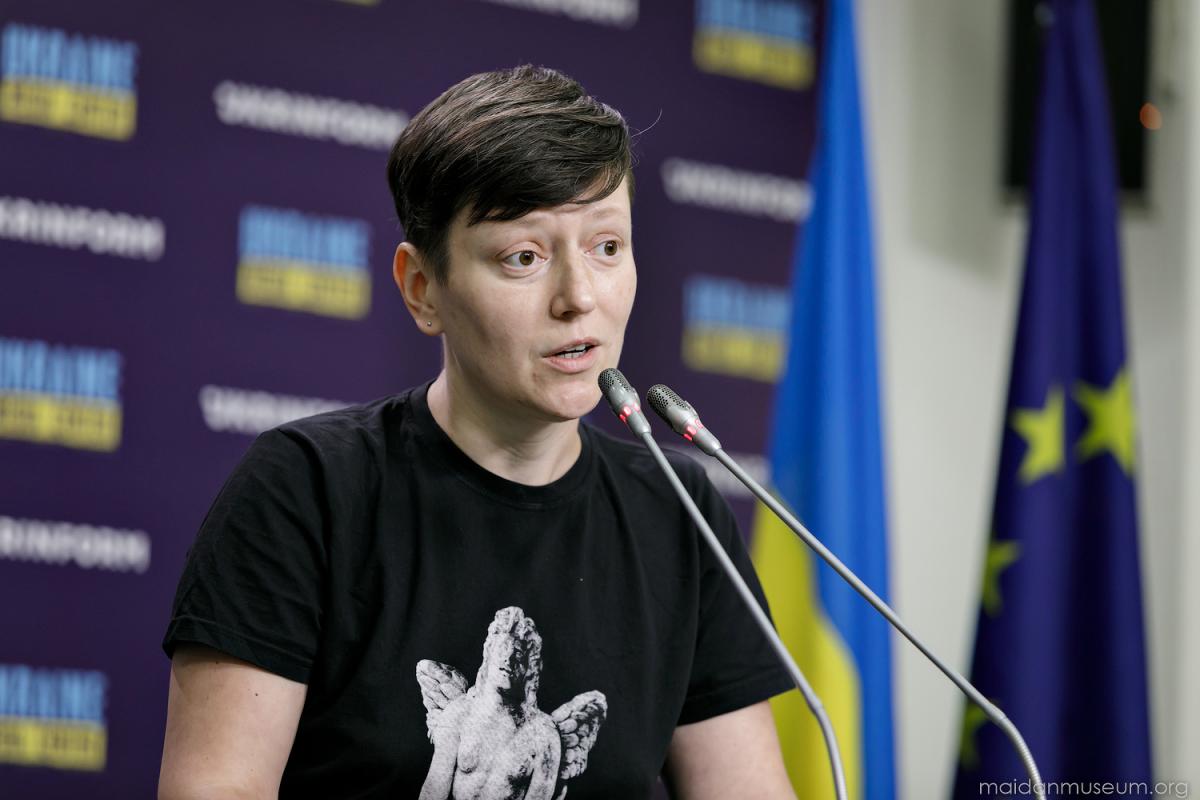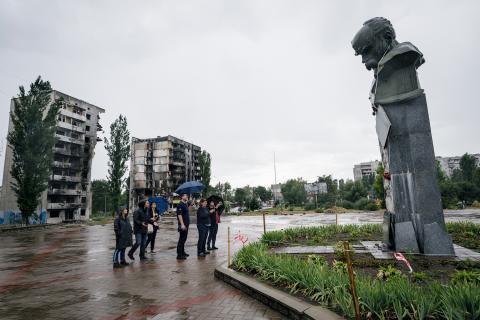
Ukraine and international organizations jointly protect and will protect our cultural heritage. After seeing with their own eyes the consequences of Russian aggression, the representatives of the International mission for the protection of cultural heritage agreed with their Ukrainian colleagues on technical, expert, and financial support for the projects, assistance in documenting damages, creating inventories, and conducting training.
Ihor Poshyvailo, the Director General of the National Museum of the Revolution of Dignity and co-founder of HERI noted, "For the sake of Ukraine, today organizations and institutions, both international and local, governmental and non-governmental, are uniting around the common goal, the victory. After all, we are fighting the russcists occupiers on the informational and cultural frontlines, too. That is why it is so important that today we stand together, protecting not only our historical memory, cultural identity, but also the democratic values. Therefore, we are fighting for the salvation of Ukraine and the whole world".
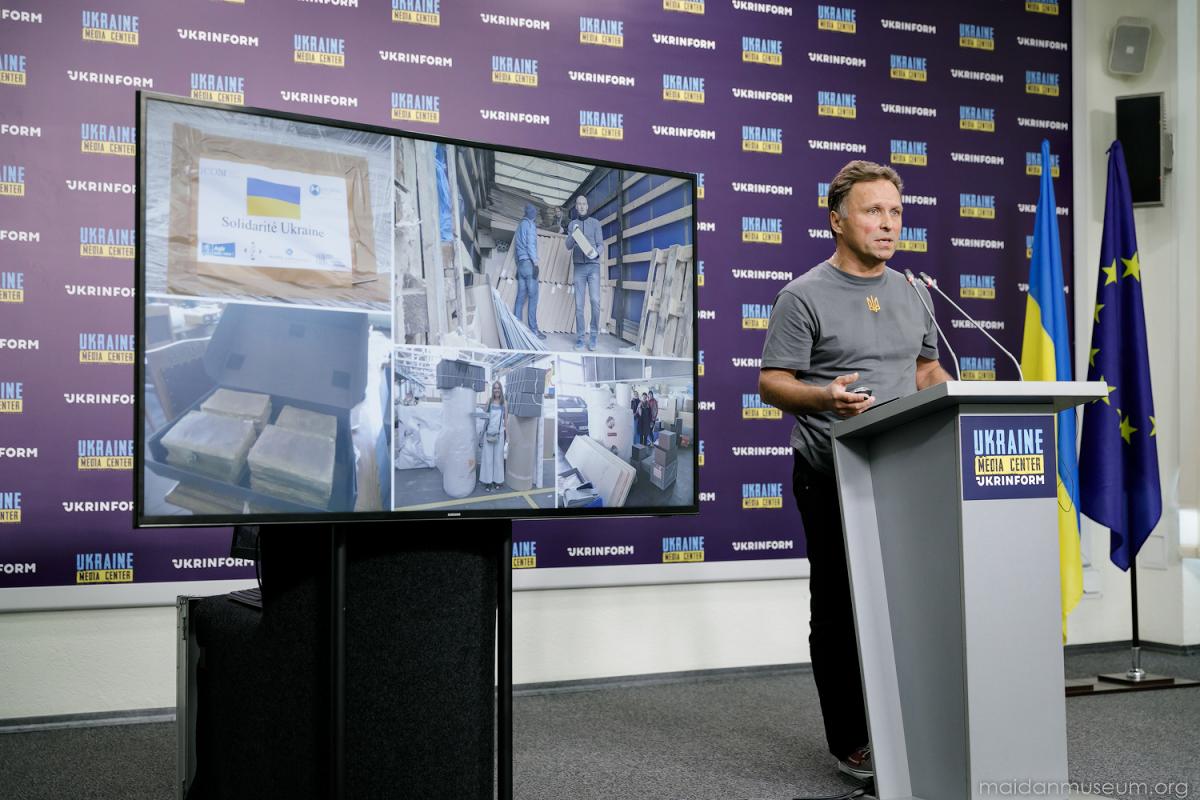
Since the beginning of the war, Heritage Emergency Response Initiative provided packaging materials and protective gear for over 70 museums and archives and organized consultations and organizational assistance for over 120 institutions. Experts from HERI conduct expeditions, document damage, and collect evidence of crimes against culture. For the International mission, HERI organized a trip to the war-ravaged towns of Kyiv and the Chernihiv region. The mission has been working in Ukraine since the beginning of the week.
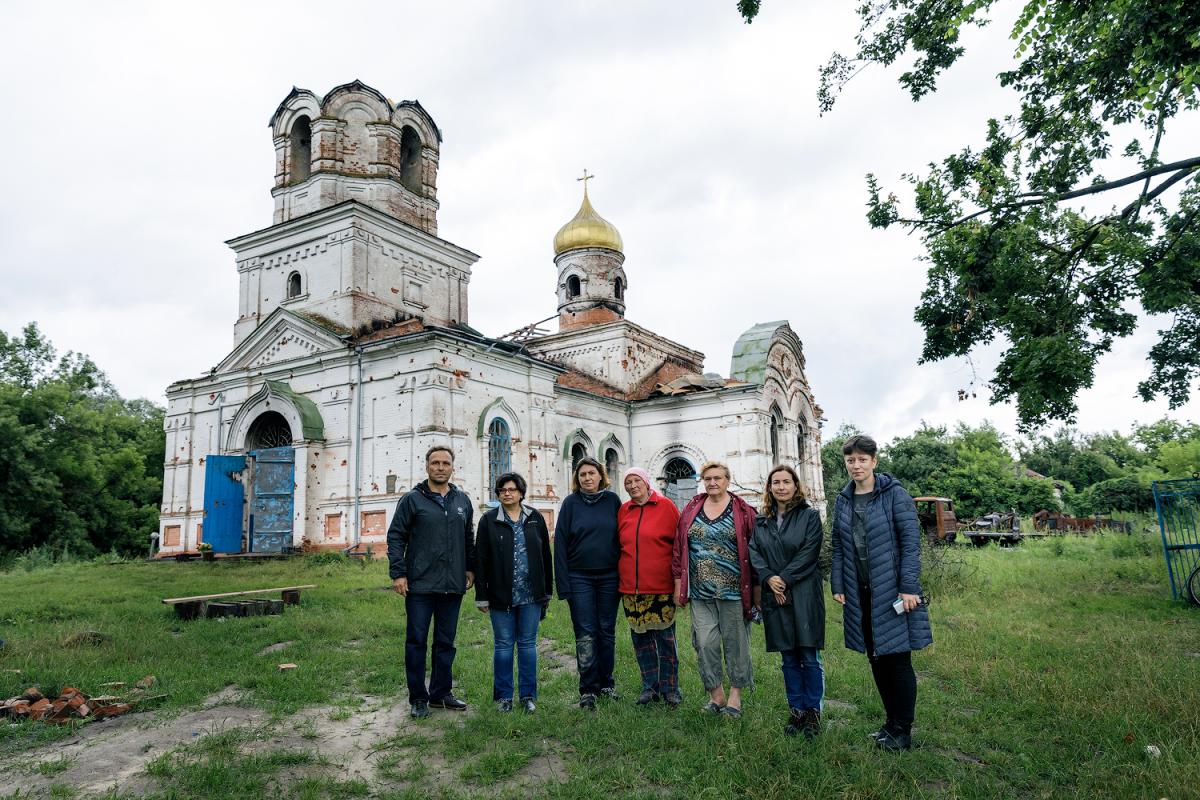
On the first day of the full-scale Russian invasion, the International Council on Monuments and Sites (ICOMOS) made a statement condemning the aggression against Ukraine. Later they developed recommendations for preserving cultural heritage. In July, ICOMOS representatives visited Ukraine.
"Global challenges require global cooperation. The European group calls on the world community to join forces and work together to preserve the Ukrainian cultural heritage, as it is being actively destroyed. We are here to see the situation with our own eyes and determine the urgent needs of the country, community, and expert groups. We discussed the urgent help and opportunities for training. I want to assure you that we, ICOMOS international, want to help you. We are ready to start working with you today", said Teresa Patricio, President of ICOMOS International.
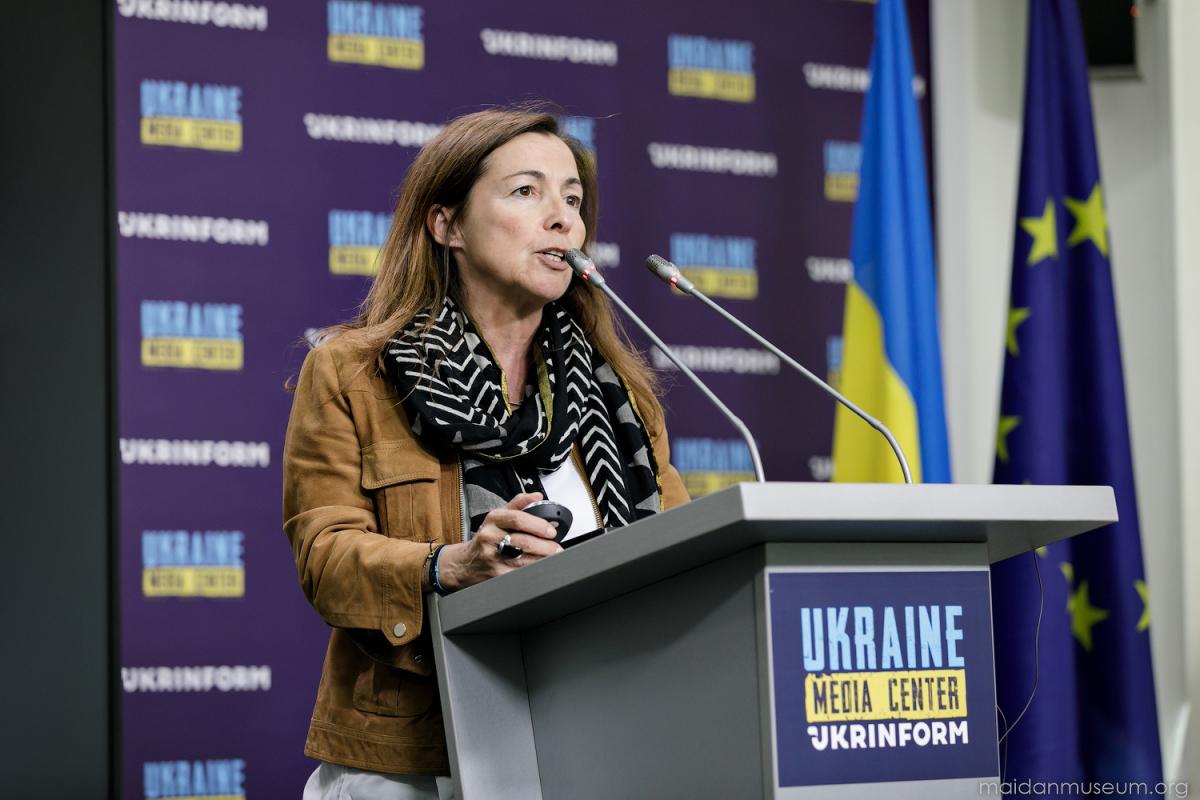
Representatives of ICOMOS and the International Center for the Study of the Preservation and Restoration of Cultural Property came with a joint international mission at the invitation of the Ministry of Culture and Informational Policy of Ukraine, HERI, and ICOMOS Ukraine. They were able to see the crimes of russcists against civilians and cultural heritage for themselves.
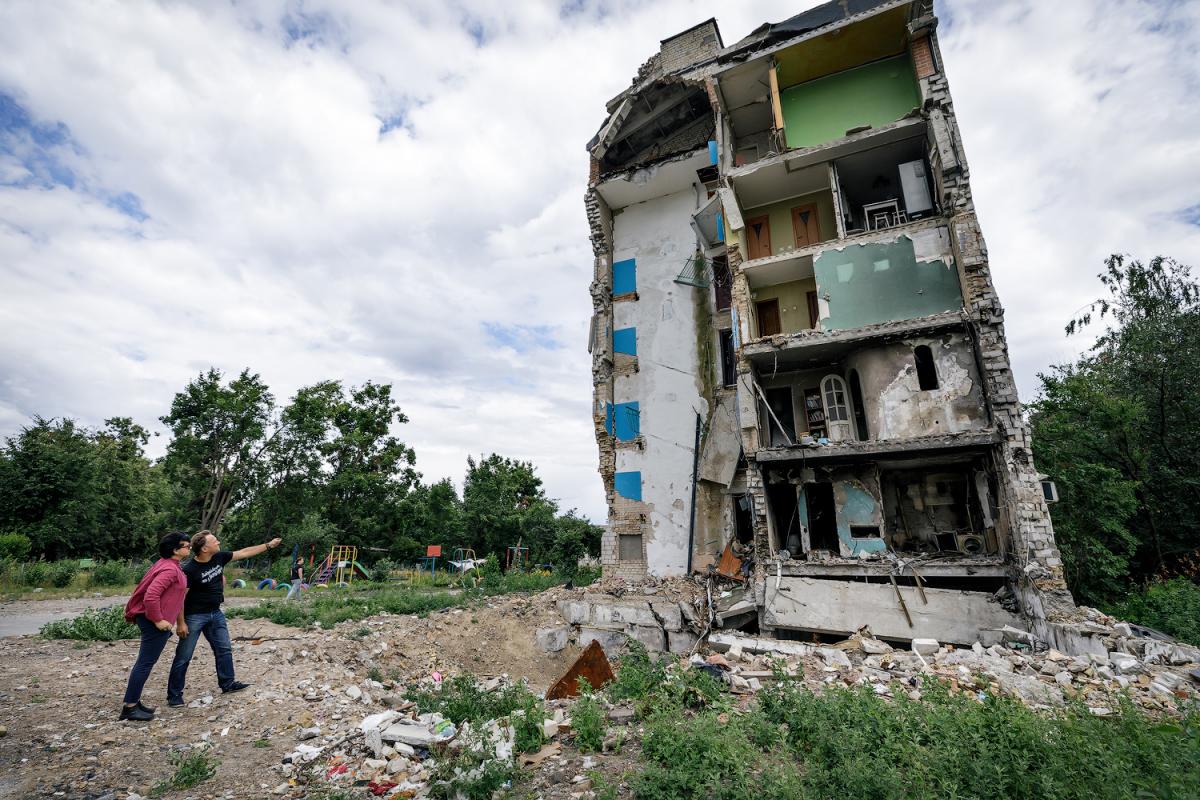
"In Ukraine, we saw some very strong and brave attempts to protect cultural heritage during the war on various levels, from the ministry to ordinary Ukrainians. Our colleagues tried to protect the cultural heritage because they were protecting the national identity. For us, the next step would be to work in a high-risk area. We want to update the map according to international standards, so that we could protect all forms of heritage from crises and war situations. After all, there might be other situations. Very soon, we will return and start our 'fieldwork", said Zeynep Gül Ünal, Vice-President of ICOMOS International.
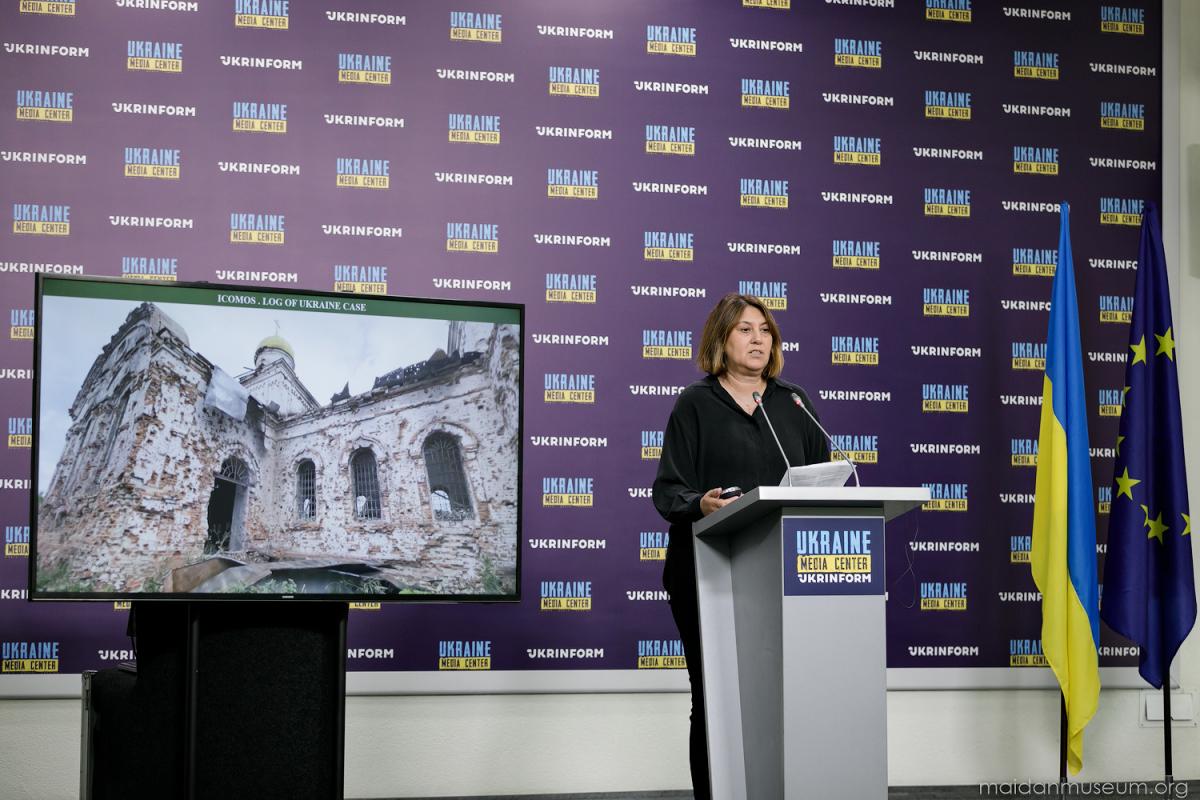
One of the key goals of the visit of the international mission is to coordinate efforts and develop a list of measures to react to emergencies in Ukraine, provide first aid to cultural heritage, and means to document and preserve Ukrainian cultural heritage during the war and post-war recovery. ICCROM experts developed and tested a mobile app for risk assessment, and damage assessment. It will help with preparations for restoration works and determining priorities for efficient use of resources. The app is available in Ukrainian, thanks to HERI.
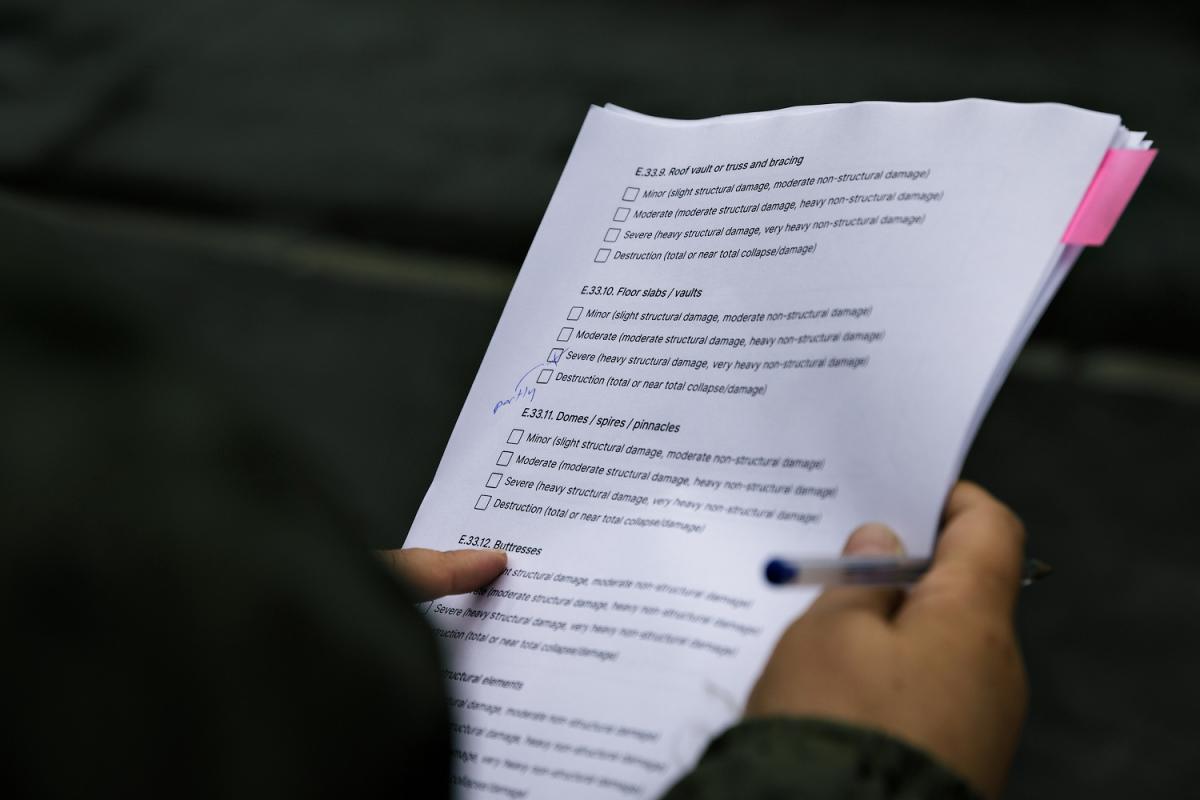
"We help train experts, coming to the country after the armed conflict and disasters, so that the restorations of cultural heritage are included in the overall recovery plan", said Aparna Tandon, Senior Project Manager and Leader of the First Aid to Cultural Heritage in Times of Crisis Programme at ICCROM.
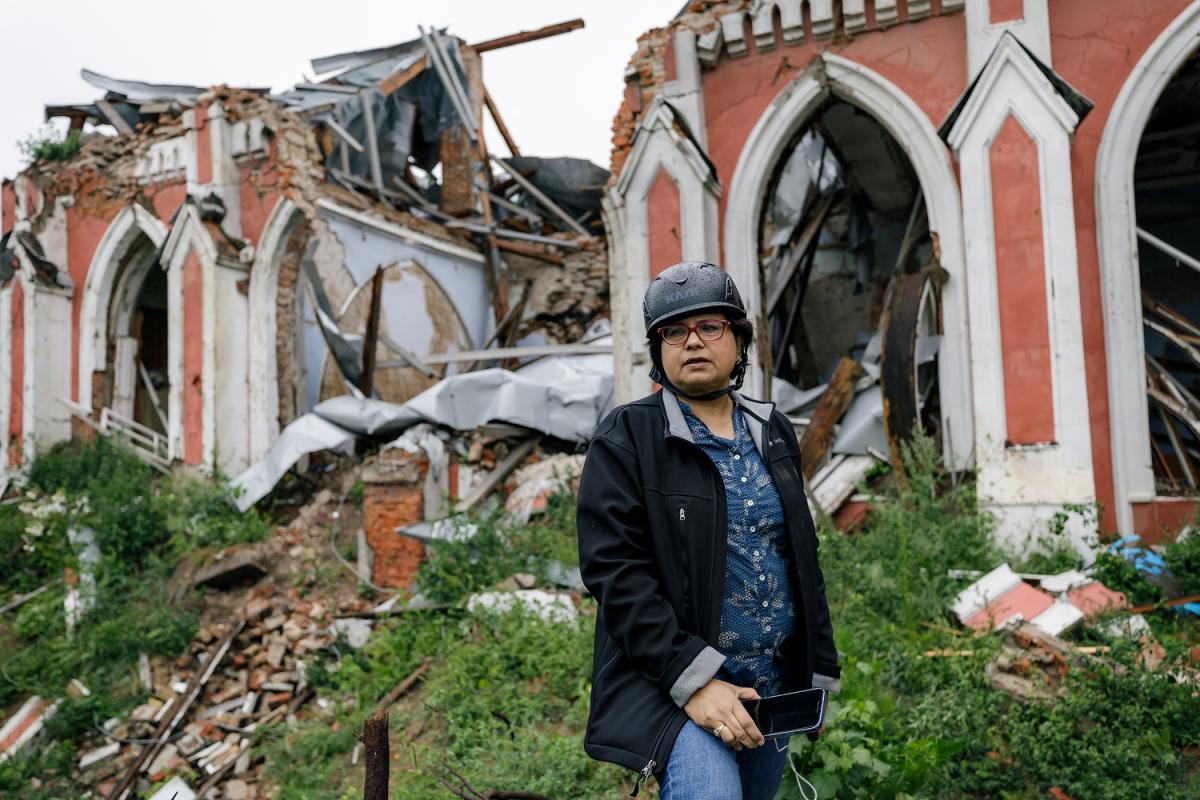
To date, the MCIP has registered 417 Russian crimes against the cultural heritage of Ukraine. The Ministry estimated the total damage caused by war to the culture at more than 5 billion euros, including both the destructions and the funds needed to support the cultural activists and restore the monuments.
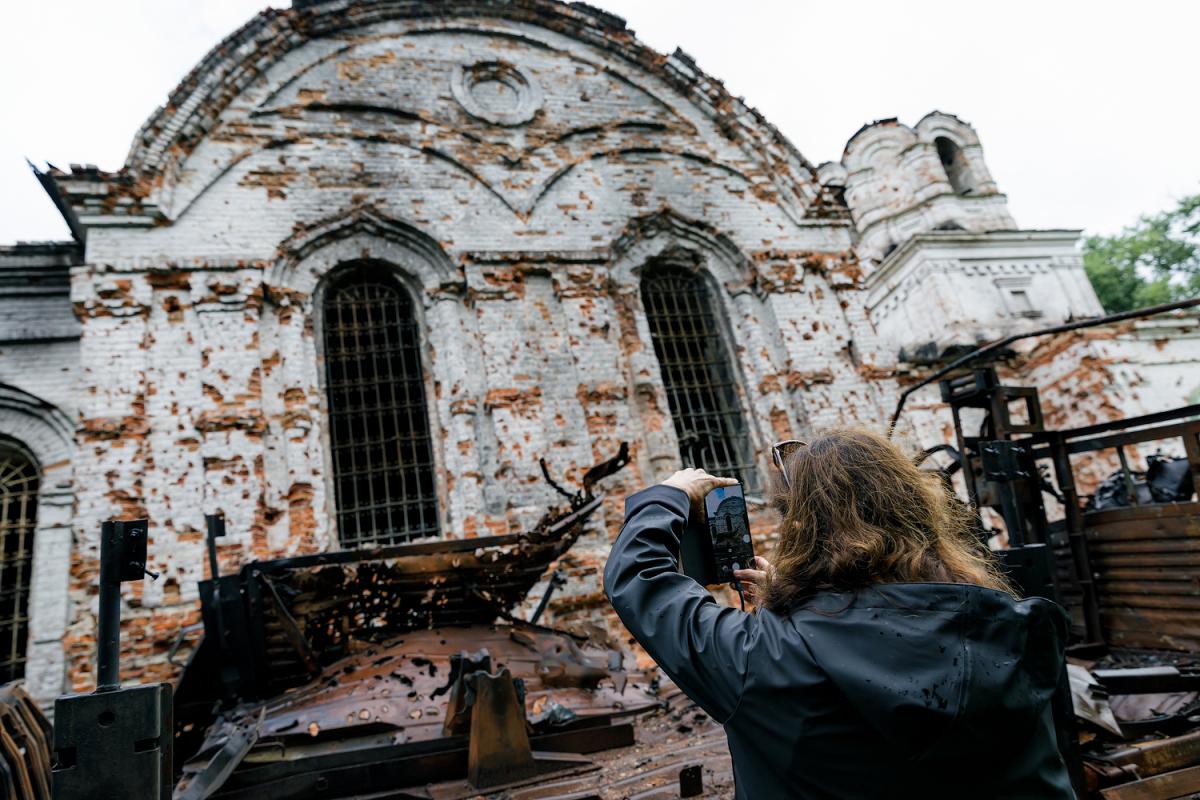
Oleksandr Tkachenko, Minister of Culture and Information Policy of Ukraine, said, "Colleagues will help us preserve the cultural heritage. They can provide consultations on documenting the damage because many issues we have now fall under the concept of war crimes. Our partners also might provide information on methods of preservation and restoration of objects, some financial, organizational help, and other assistance. International experience is extremely important and necessary here and now. Not only from the point of drawing attention to the situation with the cultural heritage in Ukraine. It's also important to apply the expertise of international experts; start the process of digitalization and security; create joint projects, and exchange experience".
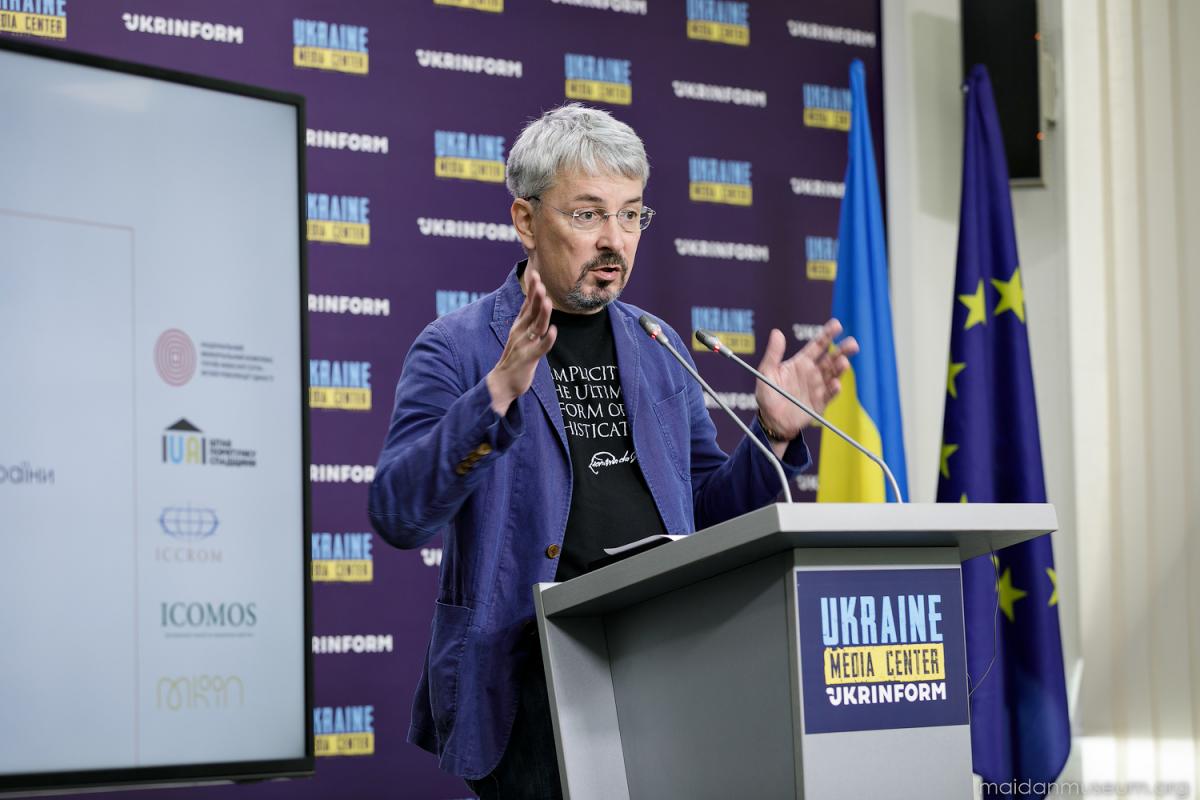
The Ministry admits that sometimes it's impossible to physically protect larger buildings. At the same time, they emphasize the importance of risk reduction, and timely and correct documentation of both intact and damaged objects.

Kateryna Chuieva, Deputy Minister of Culture and Information Policy of Ukraine, commented, "When we talk about the cultural heritage, we are not only talking about its material embodiment, but also the bearers of traditions. Therefore, every person who falls victim to this war is a loss to world culture. We are losing the knowledge this person had, the traditions they carried. Currently, we are focusing on helping people who work with cultural heritage and preserving those material carries in which the memory of humanity is embodied".
